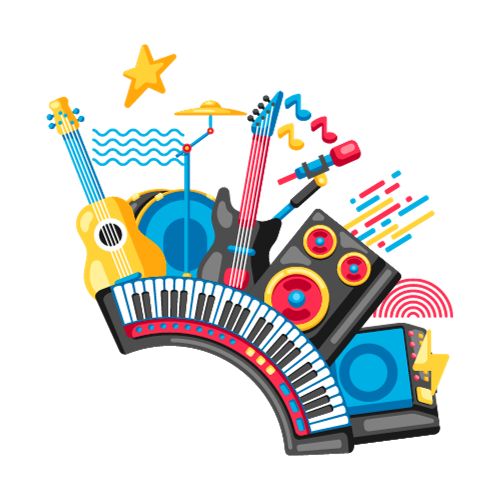Music

Music is a universal language that embodies one of the highest forms of creativity. A high-quality music education should engage and inspire pupils to develop a love of music and their talent as musicians, and so increase their self-confidence, creativity and sense of achievement. As pupils progress, they should develop a critical engagement with music, allowing them to compose, and to listen with discrimination using subject-specific language to form their own musical opinions.
At key stage 3, we begin with a focus on performing and writing rhythms using African and Indian traditional music. We then move onto learning about pitch which uses treble clef notation to enable pupils to perform famous five-finger melodies on the keyboard. This includes classical music by Beethoven and Mozart and traditional British Sea Shanties. Major and minor chords are added by some pupils, and this links nicely into Year 8 where all pupils develop an understanding of these chords using film music and the 12-Bar Blues. The bass clef is then taught by performing bass riffs from popular music including songs from the modern-day charts. Into Year 9, pupils are encouraged to use these skills and work independently in pairs or groups using different instruments including the keyboard, guitar, ukulele, drum kit and vocals. They get opportunities to develop their composition skills using Digital Audio Workstations (DAWs) and also live instruments focusing on Holst, The Planets.
At key stage 4, pupils use all these skills to focus on performing as a solo and ensemble on their chosen instrument, vocals or technology. In Year 10, they explore music theory in more depth, which includes scales and keys as well as focusing on the four areas of study:- Western Classical Traditions 1650-1910, Popular Music, Traditional Music and Western Classical Tradition Since 1910. All of these build on prior knowledge taught in Key Stage Three such as instruments and the elements of music. In Year 11, pupils will complete two compositions using music software or live instruments and two performances for their final examination.
Throughout the key stages, pupils get the opportunity to build on previous musical skills. Our curriculum is deliberately and purposely designed to enable pupils to retrieve knowledge from previous topics and to build on that knowledge. Mastery tasks and skills are always available to ensure that all pupils, including those who are studying privately with peripatetic teachers, are all challenged. This gives all our pupils the opportunity to develop their passion for music in their own individual way.


